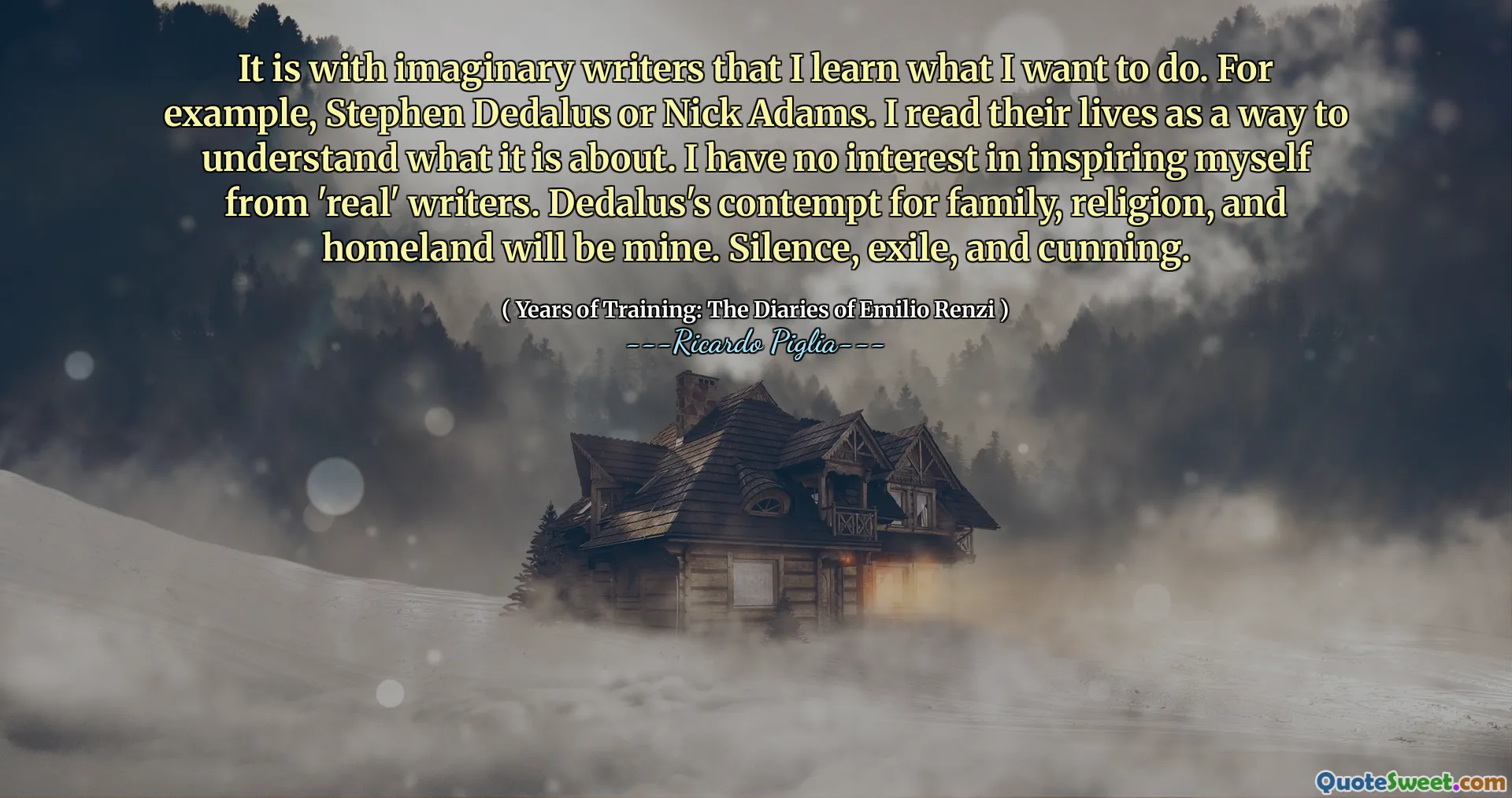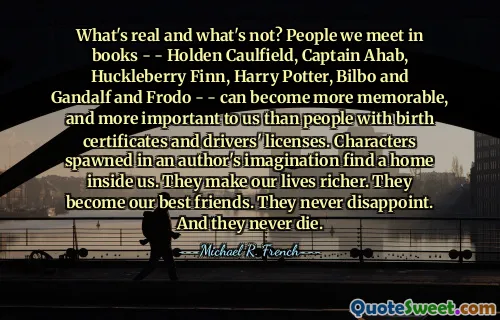
It is with imaginary writers that I learn what I want to do. For example, Stephen Dedalus or Nick Adams. I read their lives as a way to understand what it is about. I have no interest in inspiring myself from 'real' writers. Dedalus's contempt for family, religion, and homeland will be mine. Silence, exile, and cunning.
[In this reflection, the speaker emphasizes a profound affinity and intellectual kinship with fictional characters and their creators rather than real-life authors. This perspective highlights the idea that fictional figures like Stephen Dedalus or Nick Adams serve as idealized embodiments of certain virtues or struggles—elements that might be elusive or complicated in real life. The choice to learn from imaginary writers suggests an appreciation for the creative process and the symbolic power of their narratives, which often abstract and elevate human experiences beyond mundane or societal constraints.
This attitude also underscores a personal stance towards authenticity and inspiration. Instead of drawing from tangible figures, the speaker values the constructed worlds and characters that allow for exploration of ideas like silence, exile, and cunning—concepts often associated with intellectual independence, detachment, and strategic thinking. Dedalus's disdain for family, religion, and homeland resonates with a desire for personal liberty, perhaps a rejection of societal expectations or norms.
What this reveals is a respect for fiction as a means of philosophical and emotional exploration. By immersing oneself in imagined lives, one can experiment with identity, morality, and purpose in ways that real-life experiences may sometimes constrain. The quote celebrates the power of literature and imagination as tools for self-discovery and ideological development, emphasizing that these fictional inspirations can guide one towards a unique, authentic way of being—marked by silence, exile, and cleverness, rather than conforming to conventional ideals.
Overall, it offers a contemplative outlook on how fiction influences our understanding of life and ourselves. It champions the idea that the ideal sources of inspiration are often those that distill human complexity into symbolic narratives—an approach that fosters independence, introspection, and resilience,相 Reflection on the transformative role of literature in shaping identity and thought.




